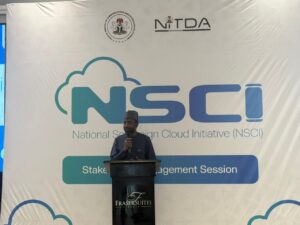By Wabo Majavu, Executive, Strategy and Business Operations, Africa Data Centres

The data center industry in Africa is experiencing rapid expansion, driven by several factors including increased mobile adoption, fintech innovations aimed at financial inclusion, growing investments in digital infrastructure, and the transformative potential of Generative AI. As countries like South Africa, Kenya, Morocco, Nigeria, and Ghana emerge as key regional data center hubs, Nigeria stands out for its vibrant economy and promising investment opportunities. However, with the rise in data center demand, there is an urgent need for reliable and cost-effective energy sources.
Traditionally, Nigerian data centers have relied heavily on diesel generators. This reliance is increasingly problematic due to the rising cost of diesel, environmental concerns, and the significant carbon emissions associated with diesel power. Consequently, many data centers are now transitioning towards more sustainable energy solutions.
Transitioning to sustainable energy: A roadmap
Nigeria’s energy transition involves a phased approach. Initially, data centers are moving from diesel to natural gas, which serves as a cleaner and more cost-effective transitional fuel. Nigeria’s position as the largest producer and consumer of natural gas in Africa provides a unique opportunity to leverage this resource for a smoother transition to net-zero emissions. This transition also allows time for the development of regulatory frameworks and the establishment of partnerships with independent power producers (IPPs), distribution companies (DISCOs), and electricity generators.
This shift provides IPPs with the chance to invest in upgrading last-mile infrastructure, ensuring a continuous and reliable energy supply for data centers.
Financial and environmental cost considerations
While diesel generators may seem economical initially, they come with significant hidden costs. Maintenance, frequent part replacements, and fuel price volatility can drive up operational expenses. According to a study by the International Finance Corporation (IFC), diesel generators can account for up to 40% of a data center’s operational costs. In contrast, sustainable energy solutions such as wind and solar power, though requiring a higher initial outlay, offer lower operational costs and significant long-term savings. These renewable sources provide a more stable and predictable cost structure and align with global trends towards green funding, such as the Sustainable Energy Fund for Africa.
The rising focus on Environmental, Social, and Governance (ESG) criteria is shaping investment strategies globally, and Nigeria is no exception. The drive for sustainability is influencing investment decisions, and aligning with these trends could enhance Nigeria’s attractiveness to investors.
Economic and sectoral impact
The critical decision Nigeria faces is implementing a unified clean energy strategy that aligns with the rapid growth of data centers. Transitioning to sustainable energy sources is not only a response to the high costs of diesel and the outdated electricity grid infrastructure but also an opportunity for economic transformation. This shift could create job opportunities across various stages of the supply chain, from energy production to infrastructure development and maintenance.
As digital adoption continues to grow, Nigeria has a crucial opportunity to make significant strides towards a greener future. By adopting a phased approach—starting with diesel, transitioning to natural gas, and eventually embracing renewable energy—Nigeria can establish itself as a leader in sustainable data centers. This strategic move will not only support the growth of the digital economy but also yield significant and sustainable socio-economic benefits for the country.
The transition to sustainable energy sources is both a necessary and advantageous step for Nigeria’s data center industry. It offers a path towards reduced operational costs, greater energy stability, and alignment with global sustainability goals, positioning Nigeria as a forward-thinking leader in the African tech and infrastructure landscape.




